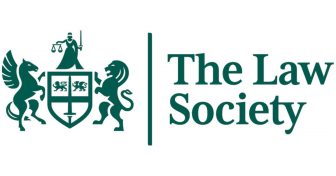The Law Society of England and Wales has joined MPs and others in calling on the UK government to protect leaseholders from the costs of making their homes safe from potentially deadly cladding.
Homeowners have almost no recourse available to them as, because of an ancient quirk of English law, buyers of defective homes cannot recover the cost of rectifying them from councils or building inspectors who gave approval for them to be occupied.
“Many properties built over the last twenty years are potentially dangerous as a result of unclear building regulations, poor building practices, defective materials and inadequate enforcement of the rules,” said Law Society president David Greene.
He continued: “Conveyancing lawyers complete the purchase of new homes only after a building control inspector has issued a completion certificate for the property, and a cover note has been issued for new build guarantee insurance.
“Where dangerous defects exist due to inadequate building regulations and/or inadequate enforcement, and the costs of remediation are not covered by guarantee insurance, the costs should not be allowed to fall on long leaseholders.
“The UK government should support leaseholders who are faced with significant and unavoidable costs through no fault of their own, and who have no realistic recourse.
“In other circumstances, where responsibility for the defects rests solely with developers, material suppliers or building contractors, the UK government must find a way of alleviating the financial burden on the home-owners, for example providing the funding upfront so that buildings can be made safe and then seeking recourse against those responsible at a later stage.”
The Law Society is recommending that:
+ The UK government conduct a comprehensive assessment of the expected cost of remediating buildings with unsafe cladding to make them safe. Once the full cost has been established, the government should act to ensure costs that must be borne by long leaseholders are kept to a minimum, and ideally zero.
+ Where long leaseholders are faced with unavoidable costs as a result of failings with the Building Control Regime, these leaseholders should be entitled to government support to ensure that they do not have to pay the price for a system that failed to protect them.
Greene added: “Our members are reporting that the absence of a forthcoming solution to this issue is causing sales and purchases to stall, which may cause significant disruption in the market and have knock on effects on consumers and the wider economy.
“We would welcome the opportunity to work with the UK government to identify and implement solutions for long leaseholders.”



The only solution that will work is for all remediation costs to be borne by Govt and then gradually recovered from those responsible. That means NO leaseholder should bear ANY remediation costs. It would simply not be worth the remediation costs. Far better for lenders to repossess and pay the remediation costs themselves. If they don’t then freeholders will repossess and lenders will lose all legal title. Leaseholders won’t pay anything so lenders would have to try and recover from leaseholders which they won’t stand a chance of doing Leaseholders would be better off going bankrupt. That way it prevents anyone coming after mortgage debt etc. Lenders have 12 years to chase borrowers unless bankruptcy has been declared and discharged. Lenders stand to lose £billions on unremediated properties.
They would need to pay the remediation costs to restore a market value to the properties This would devastate the UK property market.
Govt must surely realise that it cannot afford for the property market to be damaged.
£30 billion is a minor detail to ensure the UK property market is kept in rude health.
The UK must have a vibrant property market.
Without one the UK economy will be devastated
You must be logged in to like or dislike this comments.
Click to login
Don't have an account? Click here to register